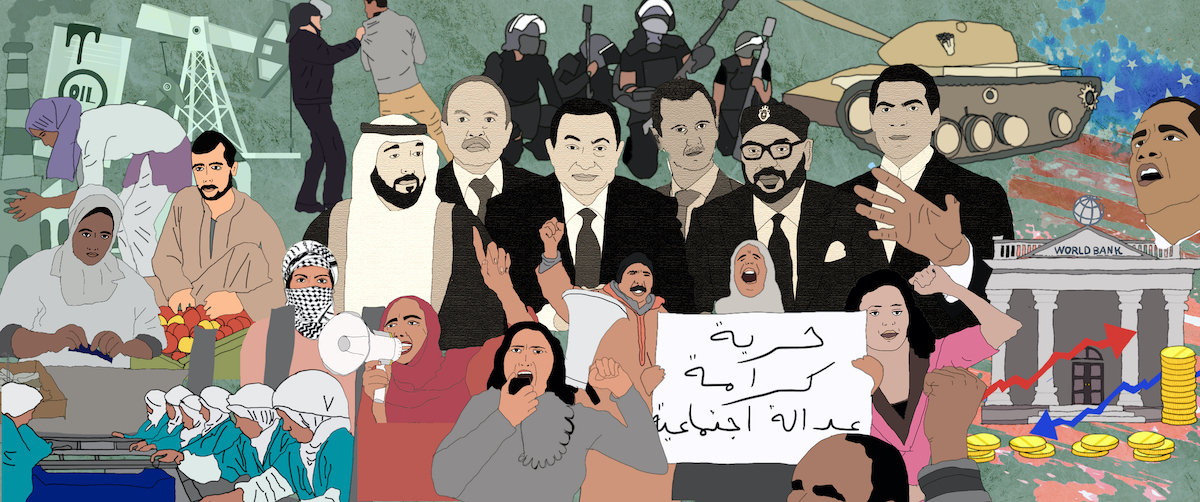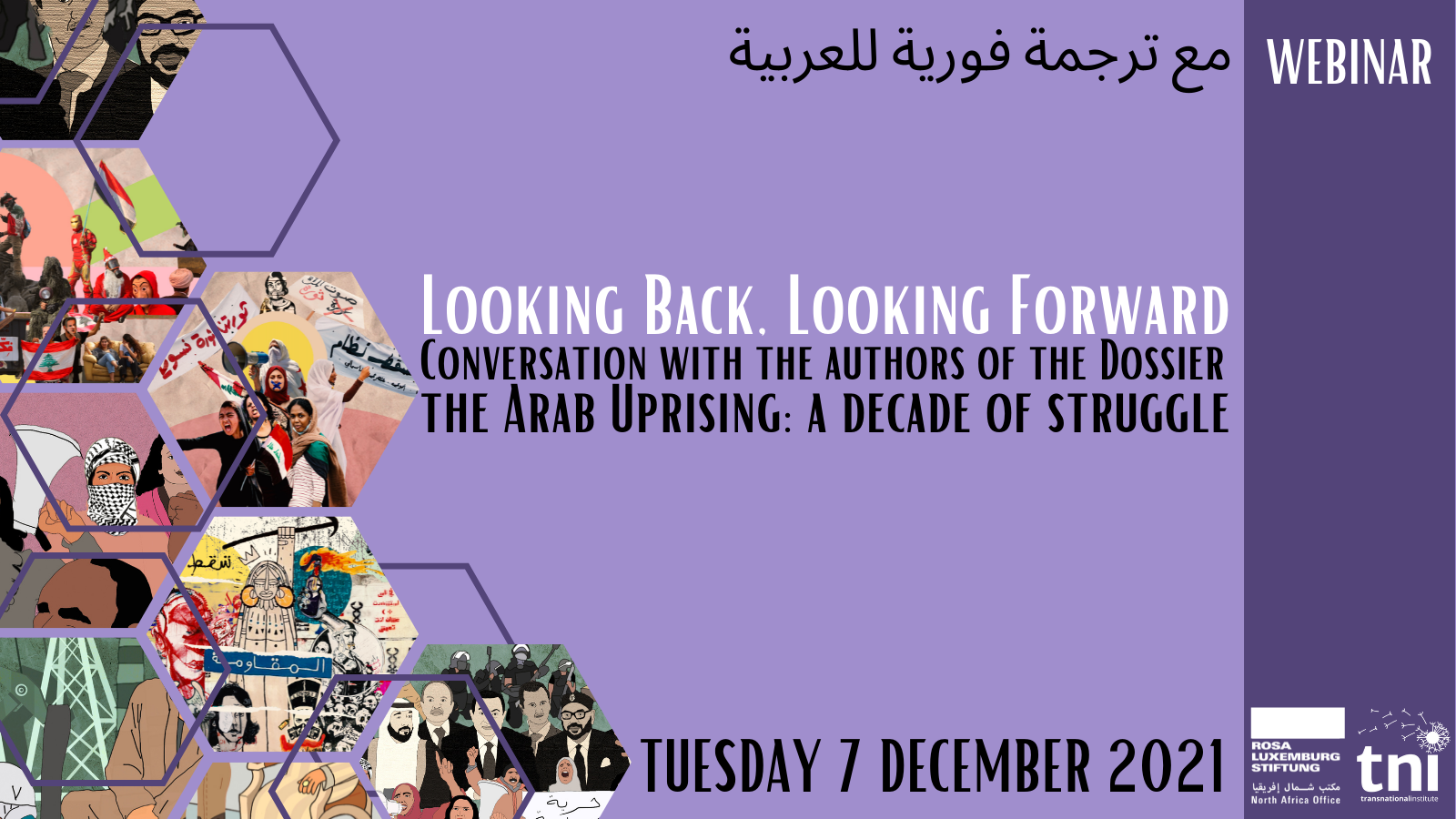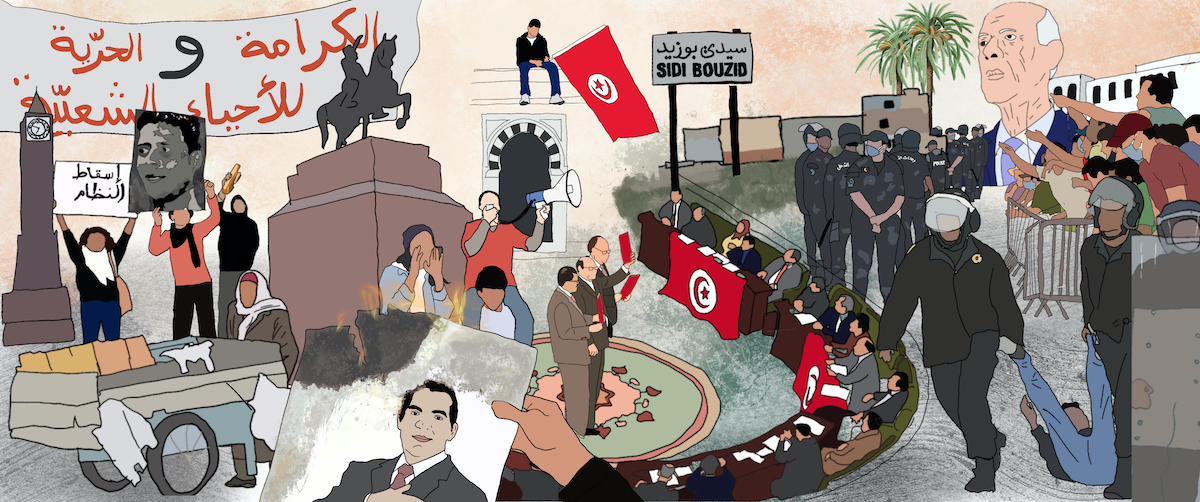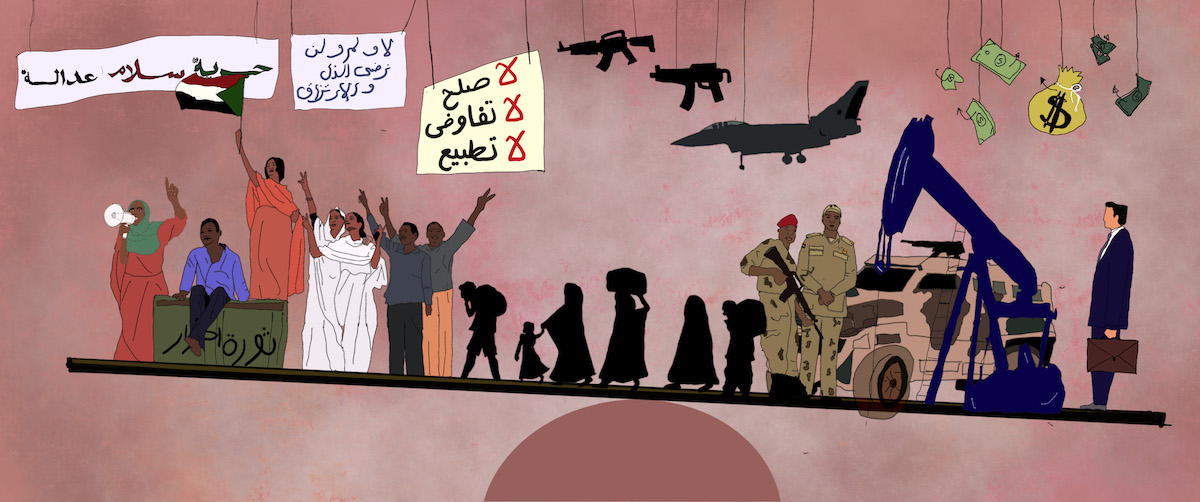|
Ten years after the “Arab Spring”, our new project brings together insights and analyses from a dozen brilliant scholars and activists.
Was this forwarded to you? Sign up
here
|
|
Dear reader,
The “Arab Spring” shook and inspired the whole world. Ten years later, the narrative advanced is often one of despair and hopelessness: the uprisings were not worthwhile, better to have remained in poverty and in chains.

But such an interpretation needs to be strongly challenged and deconstructed in order to offer a more nuanced and less idealist reading of revolution and what it entails.
Our new project sets out to offer such a nuanced reading. It brings together memories, argumentations and analyses from various scholars and activists.
|
|
|
In addition, we invite you to join the 'Looking Back, Looking Forward' webinar, taking place on December 7 at 17:00 CET, in which we will hear from outstanding scholars and activists from the region who have written brilliant essays for this dossier on the Arab Uprisings. Please register here.

|
|
| |
| Looking back, looking forward: To inherit a revolution |
|
Miriyam Aouragh and Hamza Hamouchene
Ten years after the “Arab Spring”, the narrative advanced is often one of despair and hopelessness: the uprisings were not worthwhile, better to have remained in poverty and in chains. Why is this conception wrong, and how do we look at the revolutions through a socio-economic lense?
> Read online
|
|
|
| Authoritarianism, economic liberalization, and the roots of the 2011 uprisings |
|
Adam Hanieh
Neoliberal developments in the Middle East and North Africa were directly tied to the intensification of Western military and political intervention in the region throughout the 1990s and 2000s.
> Read online
|
|
|
| Ten years into the Tunisian Revolution: The specificities and limitations of ‘exceptionalism’ |
|
Ghassen Ben Khelifa
What is the truth behind the ‘Tunisian exception’, as compared with the “failed revolutions” in Libya, Egypt, Bahrain, Yemen, and Syria?
> Read online

|
|
|
| The workers’ movement, revolution and counter-revolution in Egypt |
|
Mostafa Bassiouny and Anne Alexander
Any attempt to understand the course of the January 2011 Egyptian Revolution must necessarily grapple with the role of the workers’ movement.
> Read online
|
|
|
| The February 20 Movement in Morocco: Roots of failure and lessons for the future |
|
Ali Amouzai
On 20 February 2011, for the first time in its history, Morocco saw the birth of a mass movement whose political demands included reform of the country’s political system.
> Read online
|
|
|
| Saudi-UAE interventions: Arms, aid and counter-revolution |
|
Rafeef Ziadah
Saudi Arabia and the UAE have pursued an aggressive foreign policy to further their interests in North Africa, West Asia and the Horn of Africa. What are their aims and methods?
> Read online
|
|
|
| The Syrian revolt and the politics of bread |
|
Yasser Munif
In Syria, bread and freedom are inseparable: the liberation of a city is meaningless in the eyes of many inhabitants if the living conditions worsen as a result. Consequently, the weaponization of bread has been an important military strategy of the Assad regime during the revolt in Syria.
> Read online
|
|
|
| Why “it hasn’t fallen yet”? Lessons from the Sudanese revolution |
|
Muzan Alneel
The current protests in Sudan are part of an ongoing uprising: the protestors’ slogan “It hasn’t fallen yet” refers to their rejection of a military regime that prioritises debt payment and foreign investments over food subsidies and healthcare.
>Read online

|
|
|
| The 2019 Iraqi uprising and the feminist imagination |
|
Zahra Ali
In October 2019, protestors in Iraq occupied Tahrir Square in central Baghdad. Among them was an unprecedented number of women, especially young women. What was their role in the recent uprising?
> Read online
|
|
|
| Lebanon and Iraq in 2019: Revolutionary uprisings against ‘sectarian neoliberalism’ |
|
Rima Majed
It is only by linking our struggles together, within our societies and across the colonial boundaries of the nation-state, that the revolutionary uprisings can prevail, writes Rima Majed in this essay about the rise and fall of Iraq’s and Lebanon’s uprisings.
> Read online
|
|
|
| The new Algerian revolution and Black Lives Matter – a Fanonian perspective |
|
Hamza Hamouchene
What connects the recent uprising in Algeria with the movement for black lives that started in the US after the murder of George Floyd? And what can both rebellions learn from revolutionary thinker Frantz Fanon?
> Read online
|
|
|
|
|
Laleh Khalili
What are the similarities and differences between the uprisings in the Arab World that started in 2011 and continue until today?
> Read online
|
|
|
|
|
Fourate Chahal El Rekaby created the beautiful and thought-provoking illustrations for our Arab Uprisings Dossier, including these photo collages. In her own words, the collages are a celebration of the strength that this decade of protests presented, of the hope that remains, of the spontaneous struggles and the more organized ones yet to come...
|
|